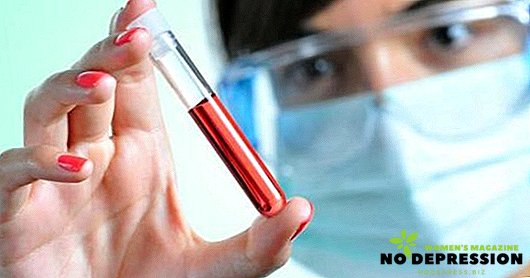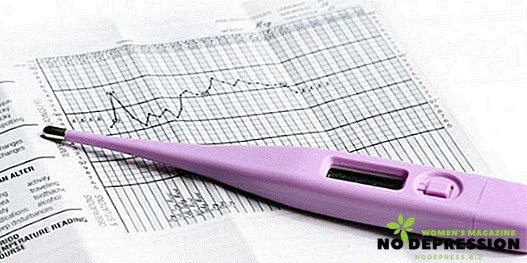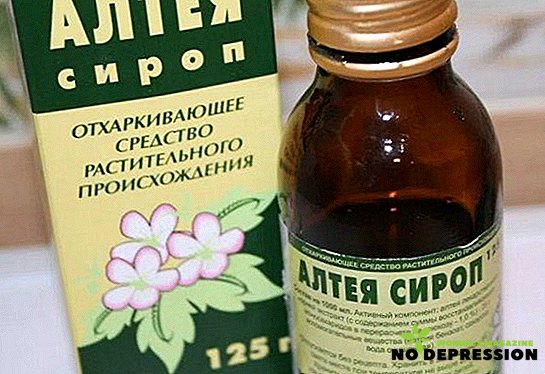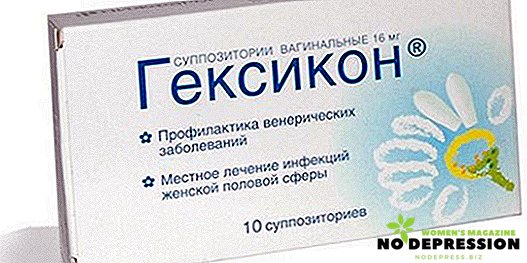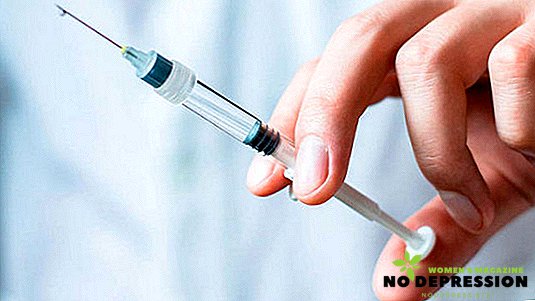For the full functioning of the whole body is very important to monitor the rate of creatinine in the blood. Its presence in large quantities can irreparably harm the internal tissues. That is why it should be regularly excreted naturally.
But there are situations when the creatinine metabolism is disturbed. If, according to the results of the analysis, a high level of a substance is shown, then all sorts of measures should be taken to restore it, having first found out the reason for such a failure.
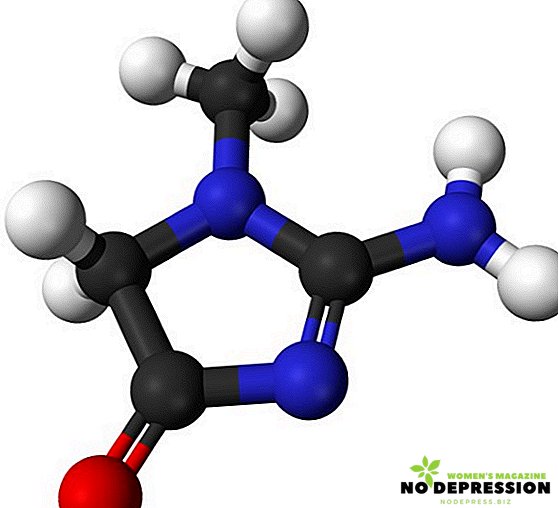
What is creatinine and where it is formed
The nitrogenous base, the release of which begins as a result of the destruction of protein tissues, is called creatinine. This product is directly involved in energy exchange between tissues.
And its formation occurs directly in the muscles, while partially standing out in the human circulatory system. Excretion of creatinine from the body occurs along with urine. Abnormalities in the kidneys can result from changes in creatinine metabolism.
If there is a sharp increase in his body, then you should think about your health and immediately undergo examinations to find out the reasons.
Determining the level of creatinine in the blood
In order to measure the level of creatinine in the body, it is necessary to conduct a special biochemical analysis of blood. With it, you can assess the general condition of muscle tissue, as well as the work of the kidneys. The concentration of creatinine is a constant indicator, and its changes in one direction or another should speak about serious violations of human health.
This analysis is necessary in the following cases:
- When certain symptoms appear, which may indicate a change in creatinine level;

- If a person decides to become a kidney donor, then such an analysis is mandatory;
- For the diagnosis of urolithiasis, various pathologies of the kidneys or muscular system;
- To determine the norm of a drug that has a toxic effect and is subsequently excreted by the kidneys.
An increase in blood creatinine is accompanied by the following symptoms:
- heaviness and unpleasant pain occur in the lumbar region;
- breathing becomes more difficult;
- severe fatigue;
- blurred mind;
- depletion of the body.
If, after analysis, you have shown an elevated level of creatinine, and at the same time you feel good, it is better to insist on retesting. Laboratory errors are very common. Therefore, once again, double-check does not hurt. Only with the same repeated result, you need to begin treatment, following the recommendations of doctors.
Norms of creatinine in the human body (µmol / l):
- newborns in the first 5 days - 27-88;
- babies of the first year of life - 18-35;
- 1 year - 10 years - 27-62;
- from 10 to 18 years - 44-88;
- men from 18 to 60 years old - 80-115;
- women from 18 to 60 years old - 53-97;
- men over 60 - 70-115;
- women over 60 - 53-106.
Creatinine in blood is raised: what does it mean?
With creatinine indices hanged, it is very important to find out the cause of this phenomenon, taking into account the age and sex of the person, and also to pay attention to physiological and pathological abnormalities. The condition when there is an increase in the substance is called hypercreatininemia.
Causes that can trigger changes in creatinine levels:
- Abnormalities in the work of the kidneys, which can be the result of diseases such as pyelonephritis, chronic glomerulonephritis, polycystic and many others;
- The destruction of muscle tissue, sometimes observed even in the case of gangrene or necrosis;
- Severe muscle damage due to burns or other injuries;
- Significant dehydration;
- Hyperthyroidism is a disease in which muscle tissue disintegrates due to an increase in thyroid hormone production;
- Radiation sickness - the cells of the whole organism are gradually destroyed, as a result of ionizing radiation;
- Circulatory disorders. The level of filtration of primary urine in the kidneys is reduced, and creatinine excretion is slowed down.
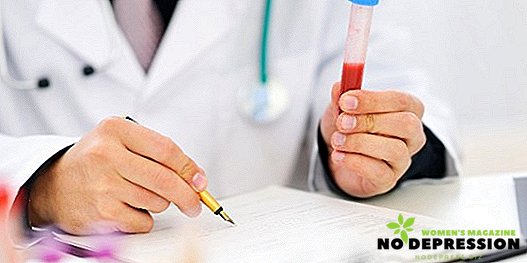
In addition, there are a number of physiological factors that affect the change in the indicator:
- Intensive regular loads on the body;
- Internal bleeding;
- Medication of a certain group;
- Pregnancy;
- Blockage of the urinary canals, as well as intestinal obstruction.
In these cases, an increase in creatinine is not critical and most often it soon returns to normal, just to stop drinking medicine or adjust your diet.
How to reduce the level of creatinine in the blood
Talking about the possibilities of reducing creatinine in the blood is possible only after finding out the reasons for its elevation. And for this you need to get the advice of a professional specialist and undergo a comprehensive examination. Having found out the reasons, the doctor can give you the following recommendations:
- If the deviations are high, then you will be prescribed special drugs that will affect the normalization of protein breakdown. These may be lespefan, ketosteril, lespinefril or others;
- With a slight increase, and at the same time, in the absence of alarming symptoms, you may be given a special diet. It will be aimed at reducing creatinine, by reducing protein foods and increasing the consumption of fresh fruits and vegetables;
- If the increase in creatinine was influenced by the work of the kidneys, then here it is necessary to adjust the daily rate of fluid intake. The installation of this norm occurs individually, taking into account the specifics of the organism;
- You also need to pay attention to what kind of lifestyle you lead, including physical activity. With certain changes, it is possible to achieve stabilization of all indicators.
Diet with elevated creatinine
Diet is another effective way to reduce creatinine. But here it should be noted that before it starts, it is better to seek help from a nutritionist. He will review your diet, make the right changes and watch the process itself. After all, a diet can not only benefit, but also harm.
At elevated levels of creatinine in the blood, the nutritionist should impose restrictions or completely prohibit the use of table salt.
In the diet of your food should be about 70 grams of protein, of which only a third can be of animal origin.
There are severe cases when protein intake can be reduced to a minimum of 20 grams per day. It can be ingested with the use of eggs, dairy products, fish or dietary meat. A protein-free diet can not last long, otherwise it will bring irreparable harm to your body. Therefore, it is necessary to treat it with the utmost seriousness.
 After improving the state, the protein gradually begin to add, but not exceeding the permissible norms. Dishes salt still can not be. To control salt intake, the patient is given the daily norm for the patient.
After improving the state, the protein gradually begin to add, but not exceeding the permissible norms. Dishes salt still can not be. To control salt intake, the patient is given the daily norm for the patient.
If the creatinine level does not begin to fall, then it is necessary to introduce fasting days based on carbohydrates. They will help to normalize the metabolism and stabilize the indicators of biochemical processes. On such days, you can use apple-sugar, potato or compote-rice diets.
In addition, follow the drinking regime, try to consume about two liters of non-carbonated water per day. To improve performance, you can enter pomegranates, citrus fruits and pears.
Also, give up fried food, and cook all products for a couple, or just boil them. Do not eat muffins and bread, but buckwheat or other cereal is ideal for a side dish.
Properly selected diet will bring creatinine levels back to normal in a fairly quick amount of time. The most important thing is not to ignore it and then you will not feel any discomfort.
Additional information on creatinine can be found in the following lecture.




